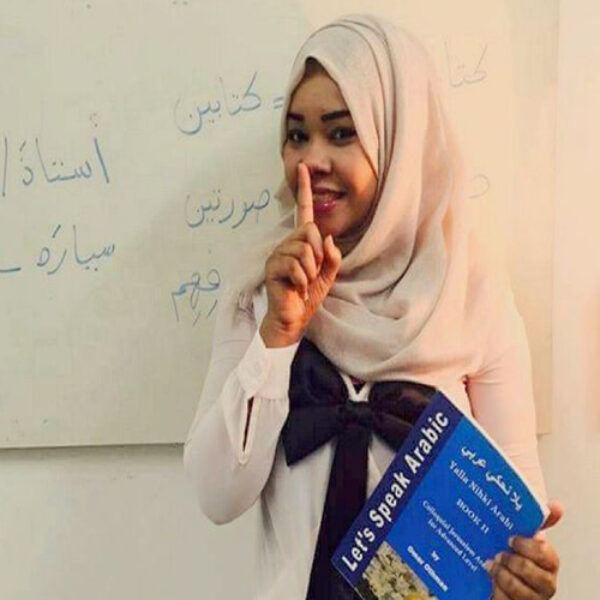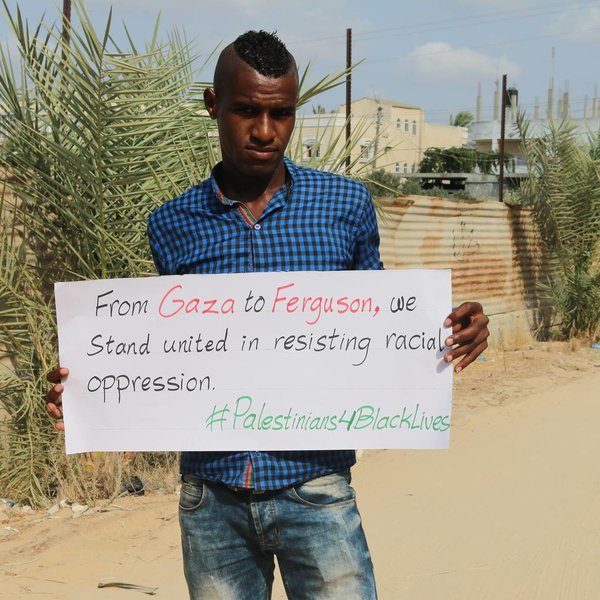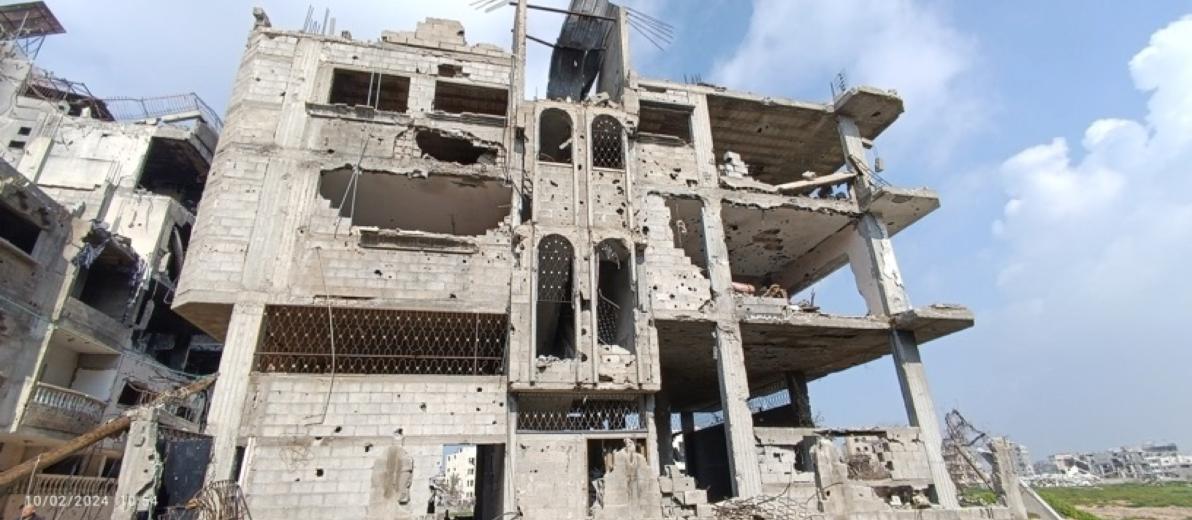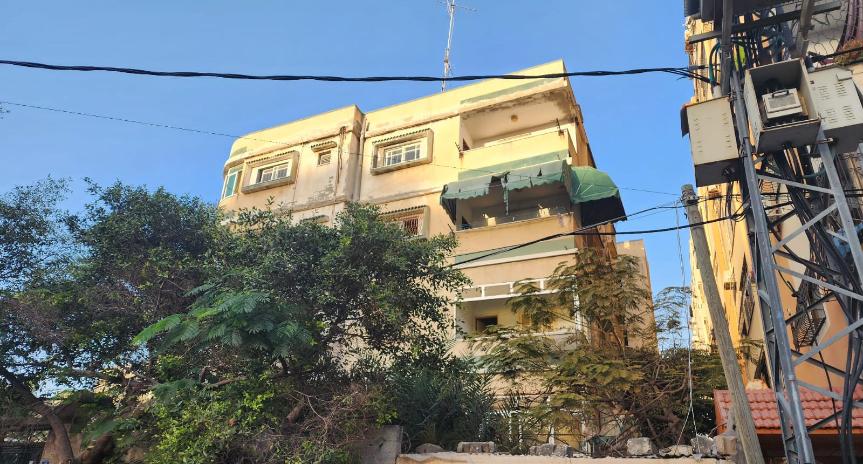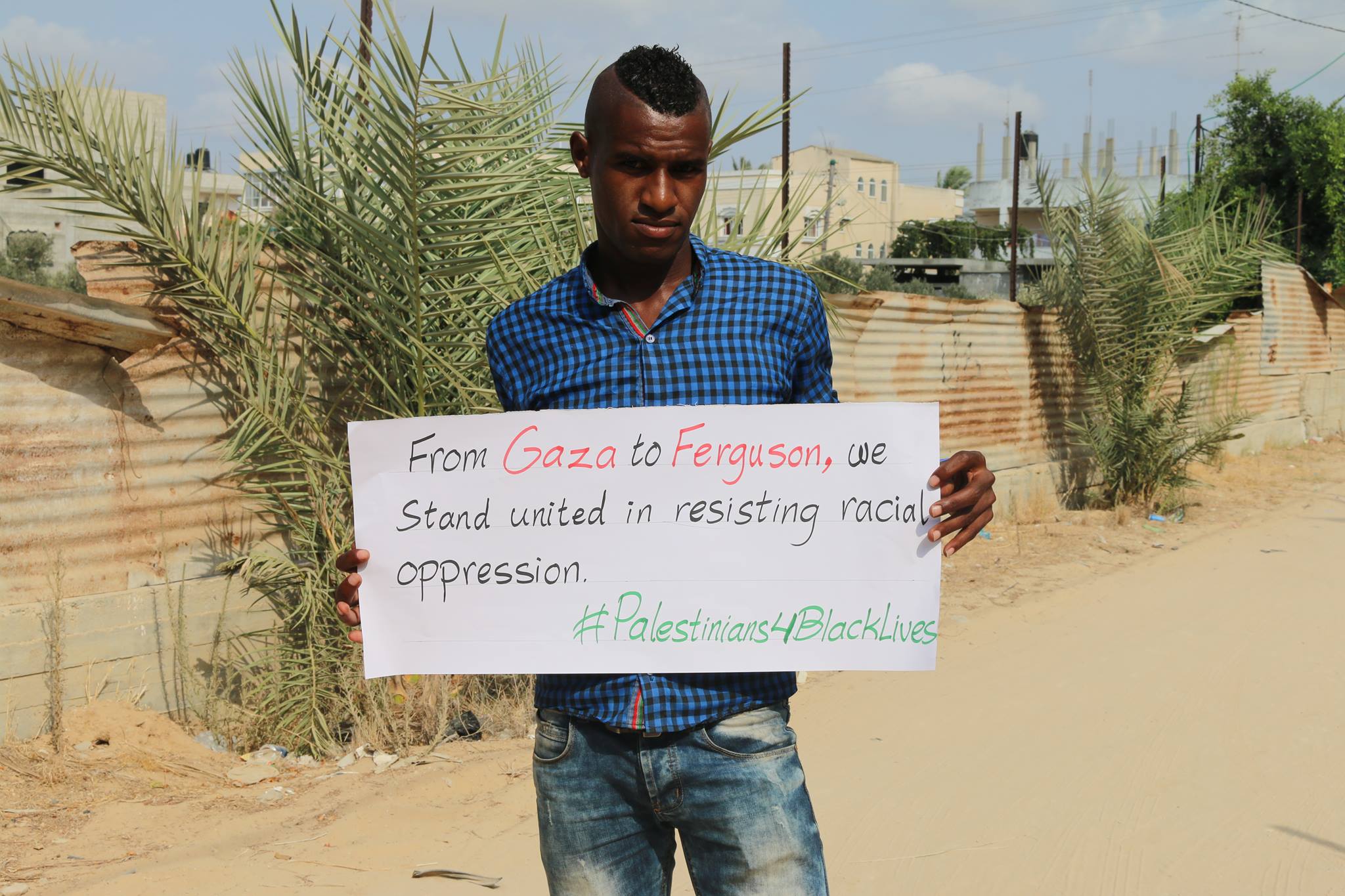
in a city called Ferguson.
Racism is a curse perhaps most prominently associated with the European colonial period in Africa, leading to what is known as "apartheid"—separation and discrimination. But racism is everywhere—even among those who are discriminated against themselves: Muslims and Arabs. This, despite the fact that the Islamic religion prohibits discrimination in all of its forms.
For example, Hesham Awad, 26, is a black Egyptian journalist who recently wrote on his Facebook page: "I was sitting on a train next to a white lady and there were only a few people. Suddenly she left the chair and sat next to a white man. I felt like she was disgusted with me or she was even afraid I might harass her or do something bad to her. This situation happens many times."
Hesham says that in his society discrimination against blacks is common. Although he would have no problem marrying a white woman, his request for the hand of a white girl was refused by her parents because of his dark color. Instead, he found a new partner through Facebook, my cousin—a black girl from Gaza. (She now is waiting for Rafah to open so that she can join him in Egypt.) And yes, we face some discrimination here too.
Black people have lived in Palestine for centuries, however—dating back to the Islamic conquests, when Caliph Omar ibn Al-Khattab conquered Jerusalem in 634. It is said that devout Muslim Africans from countries such as Chad, Sudan, Nigeria and Senegal trekked across continents to perform the pilgrimage of the Haj – first to Mecca, then to Al-Aqsa. In Gaza, some reference books say wealthy families participated in the slave trade; other darker-skinned people were said to come from Sudan and Egypt to work in the Ottoman empire's army. Statistics are hard to come by; although one estimate puts the number of blacks in Gaza at about 10,000, that number can’t be confirmed.
In my experience, people here don’t usually discriminate between black and white skin; however, there are some notable exceptions. One of them is hiring for government positions. Another is marriage.
Blacks, whites and marriage in Gaza
Consider the story of my mother, Naima, who is 59 years old. She married a black man, my father, when she was 18.
"It was in 1980; I still remember the day when your father came with his family to visit. According to the culture at the time, people married after the man first went to the woman's house and saw her so they could become engaged and get to know each other. When I saw him for the first time with his dark skin, I refused to marry him!” my mom recalls.
Then she heaved a long sigh, rubbed her wedding ring and said, "After two months, I saw him in the street by chance. I felt regret that I didn't give myself a chance to know him well, and I knew it was unfair to judge a person by his color. So I agreed to marry him and I discovered during the 14 years of our marriage that he is the greatest man in the world."
My dad died in 1994, at the age of 42. He left behind me and my five brothers and sisters, all but two of whom are black. "I would like to advise all the girls in my country not to make quick decisions and judge people by their color; otherwise, it will be their loss," says my mom.
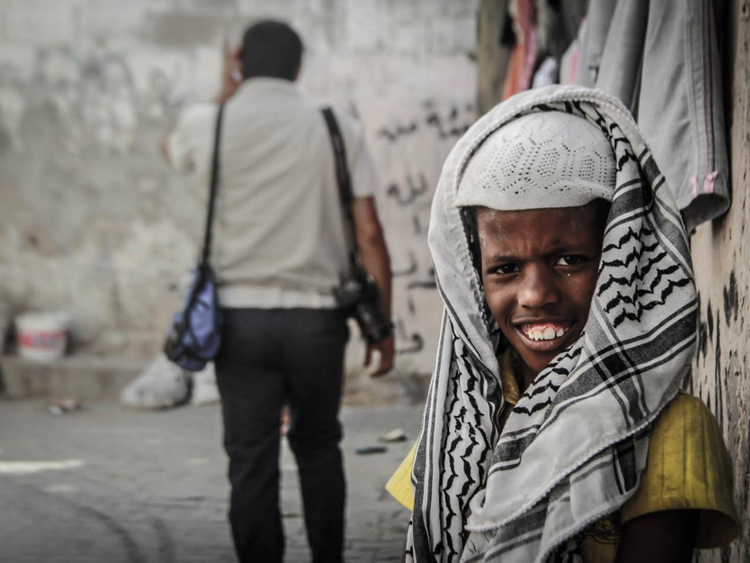
Khaleel Shaheen, director of the Economic and Social Rights Department at the Palestinian Center for Human Rights, says that while the institution has not received any complaints from blacks about discrimination, the tendency toward a bias in marriage is evident.
Another story is that of Rola, my cousin. When she was 23, she fell in love with a fair-skinned man. They kept their story a secret, in part because of their different colors (also because in conservative Gaza, it is forbidden to fall in love outside of a formal engagement).
After six years, her boyfriend decided to face his family and marry her. What they feared came true; his family refused to accept Rola because she is black. His mother blamed her hospitalization on the resultant fighting and his family demanded that he choose between his sick mum and his girlfriend. They both resigned to their fate and split up.
Rola suffered from depression for two years, hardly seeing people or even talking to them. She stayed in her bedroom with no lights and no people for hours alone, crying. Her story has a happy ending, however. She got better with medication, pulled herself out of depression so she could work and eventually managed to leave Gaza. Today, she is 34 and happily working in Norway.
Editor's note: We Are Not Numbers youth and members of Black Lives Matter in the United States are planning a partnership through which Palestinians and African-Americans can learn about each other's struggles and victories.

